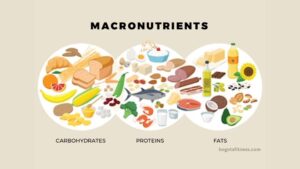Intermittent fasting is a simple eating plan where you switch between periods of eating and fasting on a set schedule. Studies suggest it can help with weight management and may even prevent or reverse certain diseases. But how does it work? And is it safe? Let’s break it down.
What is intermittent fasting?
Most diets focus on what you eat, but intermittent fasting is more about when you eat.

With this method, you eat only during certain hours of the day. Research shows that fasting for specific hours daily or eating just one meal a few days a week may offer health benefits.
Johns Hopkins neuroscientist Mark Mattson, who has studied intermittent fasting for 25 years, explains that our bodies evolved to handle long periods without food. In prehistoric times, before farming, people survived as hunters and gatherers, often going for hours or even days without eating while searching for food.
Even 50 years ago, maintaining a healthy weight was easier. There were no computers, TV ended at 11 p.m., and people went to bed early, which meant less late-night snacking. Portions were smaller, and people were more active, spending more time outdoors for work and play.
Today, with the internet and 24/7 entertainment, many of us stay up longer, sitting and snacking while watching TV, scrolling through social media, or playing games. This lifestyle can lead to overeating and less movement, increasing the risk of obesity, type 2 diabetes, heart disease, and other health problems. However, scientific studies suggest intermittent fasting may help counter these trends.
How does intermittent fasting work?
There are several ways to do intermittent fasting, but they all involve picking specific times to eat and fast. For example, you could eat only during an eight-hour window each day and fast for the other 16 hours. Or you might eat just one meal a day, two days a week. There are many different schedules to choose from.
According to Mark Mattson, after several hours without food, your body runs out of sugar stores and starts burning fat instead, a process called metabolic switching.
“Intermittent fasting is different from how most Americans eat, which is throughout the day,” Mattson explains. “If you’re eating three meals a day, plus snacks, and not exercising, you’re using the calories from those meals instead of burning fat.”
By extending the time between meals, intermittent fasting helps your body burn fat once it’s used up the calories from your last meal.
Intermittent Fasting Plans
There are several ways to do intermittent fasting, but they all revolve around picking specific times to eat and fast. For example, you could eat during an eight-hour window each day and fast for the other 16 hours, or eat just one meal a day for two days a week. There are many schedules you can try.

According to Mark Mattson, after several hours without food, your body runs out of sugar and starts burning fat instead. This process is called “metabolic switching.” He explains that most Americans eat throughout the day, from breakfast to late-night snacks, and without enough exercise, they use those calories instead of burning fat.
Intermittent fasting works by extending the time between meals, allowing your body to burn fat after it uses up your last meal’s calories. Before starting intermittent fasting, it’s important to check with your doctor. Once you get the green light, it’s simple to start. You can follow a daily plan, like the 16/8 method, where you eat for eight hours and fast for 16.
Some people find this routine easy to follow long-term, but research suggests that just limiting your eating window might not always lead to weight loss. Studies show that reducing large meals or eating smaller, more frequent meals could help prevent weight gain over time.
Another popular method is the 5:2 plan. Here, you eat normally five days a week, and on two non-consecutive days, you eat just one meal of 500–600 calories. For example, you could eat normally all week except on Mondays and Thursdays when you’d have just one meal.
Extended fasts, like going 24, 36, or 48 hours without food, aren’t necessarily better for you and can even be harmful. Going too long without food may trigger your body to store more fat as a defense against starvation.
Mattson’s research shows it can take two to four weeks for your body to get used to intermittent fasting. During that adjustment period, you may feel hungry or irritable, but those who stick with it often find they feel better once their body adapts.
What can I eat while intermittent fasting?
When you’re fasting, it’s okay to drink water and zero-calorie drinks like black coffee or tea.
During your eating windows, “eating normally” doesn’t mean going overboard. Research shows that you won’t lose weight or get healthier if you fill those times with junk food, fried snacks, or sugary treats.
The nice thing about intermittent fasting, according to some experts, is that it gives you flexibility in what you can eat—and enjoy. Eating wholesome, nutritious meals with others and truly appreciating the food can make the experience more satisfying and healthier.
Many nutrition experts recommend the Mediterranean diet as a great option, whether you’re fasting or not. It focuses on leafy greens, healthy fats, lean proteins, and complex carbs like whole grains—choices you can’t go wrong with.
Also Read: Snacking for Workout Fuel and Recovery
Intermittent Fasting Benefits
Research shows that intermittent fasting does more than just help burn fat. Mattson explains, “When this metabolic switch happens, it has effects on both the body and the brain.”

One of Mattson’s studies, published in the New England Journal of Medicine, highlighted a variety of health benefits from intermittent fasting. These include a longer lifespan, a leaner body, and improved brain function.
“Intermittent fasting triggers changes that can protect organs from chronic diseases like type 2 diabetes, heart disease, neurodegenerative disorders, inflammatory bowel disease, and even some cancers,” he says.
Here are some of the key benefits that research has found:
- Improved memory and thinking: Studies show fasting boosts memory in animals and verbal memory in adults.
- Heart health: Fasting has been shown to lower blood pressure, resting heart rates, and other heart-related markers.
- Physical performance: Young men who fasted for 16 hours lost fat while maintaining muscle. Mice that fasted showed better endurance.
- Type 2 diabetes and obesity: In studies, fasting helped prevent obesity in animals. In humans, it led to weight loss, lower fasting glucose and insulin levels, and improved insulin sensitivity. Some people with type 2 diabetes were even able to reduce their need for insulin therapy under medical supervision.
- Tissue health: Fasting helped reduce tissue damage in animals after surgery and improved recovery outcomes.
These findings suggest that intermittent fasting offers a range of potential health benefits.
Is intermittent fasting safe?
Some people try intermittent fasting to manage their weight, while others use it to help with chronic conditions like irritable bowel syndrome, high cholesterol, or arthritis. However, intermittent fasting isn’t for everyone.
Before starting intermittent fasting (or any diet), it’s important to check with your doctor. Certain people should avoid intermittent fasting, including:
- Children and teens under 18
- Pregnant or breastfeeding women
- People with type 1 diabetes who take insulin (since it may lead to dangerously low blood sugar during fasting)
- Anyone with a history of eating disorders
For those who don’t fall into these categories and can fast safely, intermittent fasting can be a long-term lifestyle change with many benefits.
Just remember, it can affect people differently. If you notice unusual symptoms like anxiety, headaches, or nausea, talk to your doctor.




